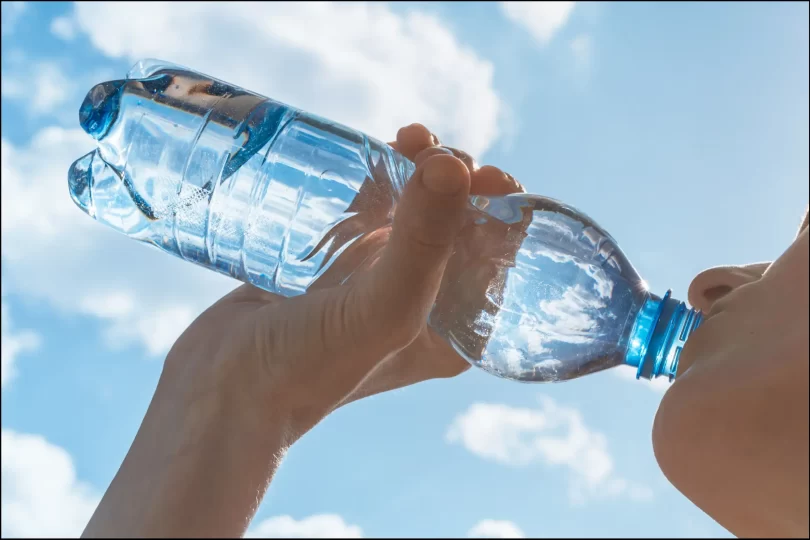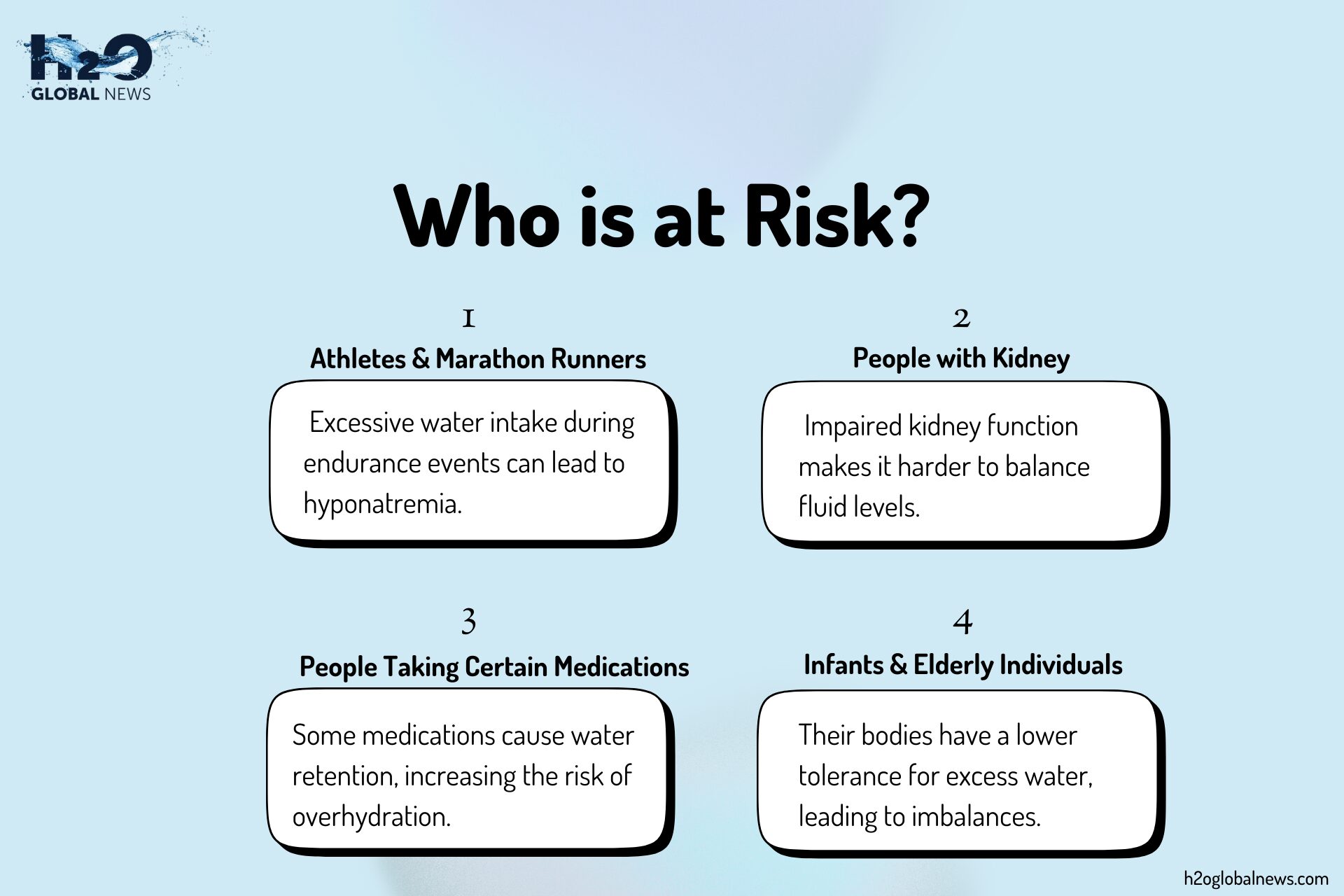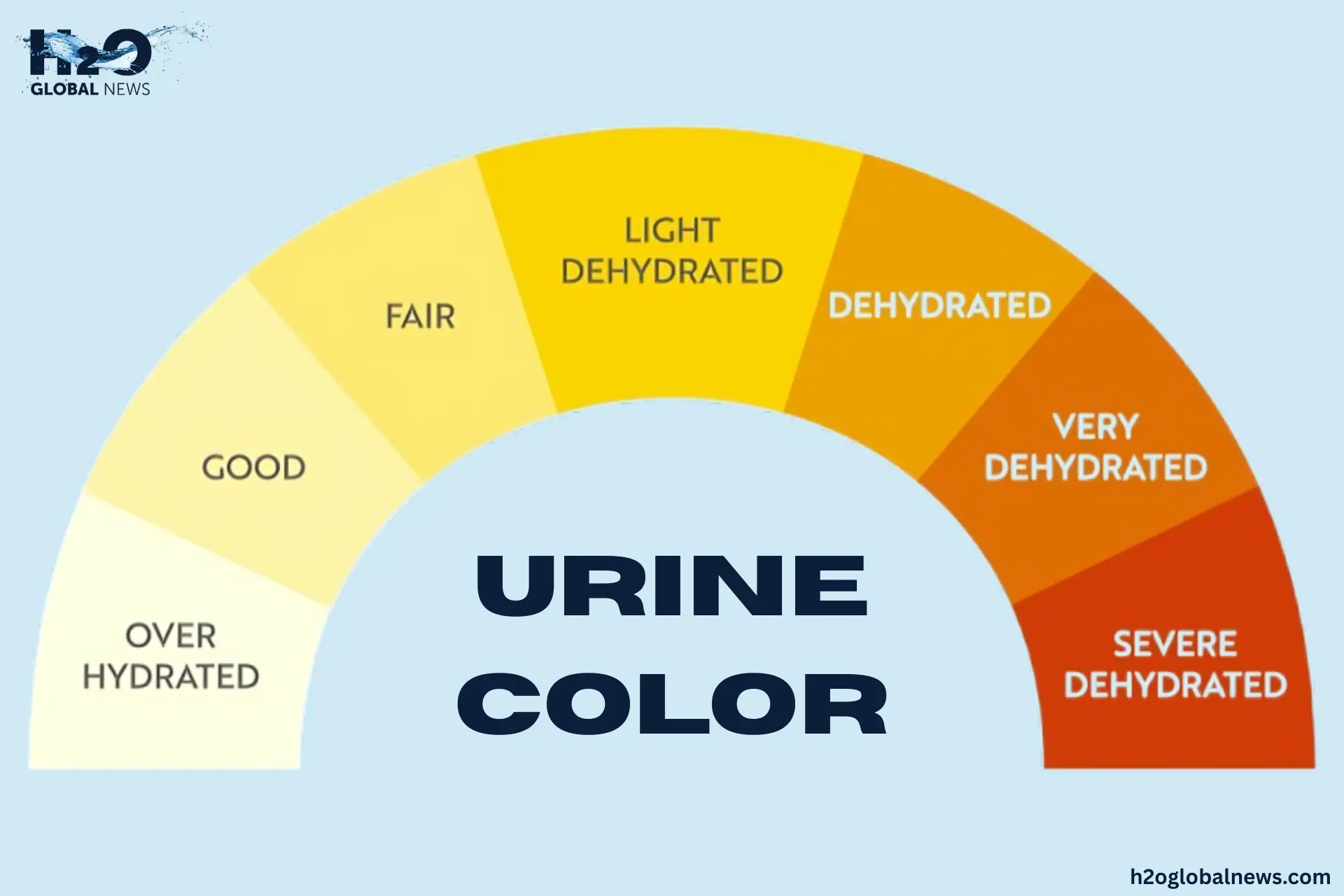Water keeps you alive, but did you know drinking too much can be dangerous? We always hear about dehydration, but drinking excessive water can quietly throw your body off balance. It can dilute essential minerals, leading to nausea, confusion, and in severe cases, even life-threatening complications.
So, how much water is too much? Are you unknowingly overdoing it? And what happens when you drink too much water? The truth isn’t as simple as you think. Let’s find out.
What Happens When You Drink Too Much Water?
Your kidneys filter and remove excess water from your body, but they have limits. The human kidneys can only process about 0.8–1.0 liters per hour. If you drink water faster than your kidneys can remove it, the extra water stays in your bloodstream.
This dilutes sodium levels, causing hyponatremia (low sodium in the blood). Sodium is essential for maintaining fluid balance in and around your cells. Water moves into your cells when sodium levels drop, making them swell. This can be especially dangerous for brain cells, leading to confusion, headaches, and even coma in severe cases.
A famous example of this occurred in 2007 when a woman died after drinking over 6 liters of water in a short time during a radio contest. Her body could not handle the excess, and she suffered fatal water intoxication.
Symptoms of Drinking Too Much Water
Overhydration doesn’t always show obvious symptoms at first, but some warning signs include:
Mild Symptoms:
- Frequent urination – Going to the bathroom more often than usual.
- Feeling bloated – Excess water causes swelling in your hands, feet, or face.
- Nausea – Your stomach might feel uneasy after drinking large amounts.
- Headache – Diluted sodium levels can cause mild to severe headaches.
Severe Symptoms:
- Confusion and disorientation – Your brain cells swell, affecting thinking and memory.
- Vomiting – The body tries to get rid of excess water.
- Seizures – A sudden drop in sodium can cause involuntary muscle movements.
- Coma – In extreme cases, swelling in the brain can be fatal.
Overhydration: Who is Most at Risk?
Not everyone will experience overhydration, but certain groups are more at risk:
- Athletes & Marathon Runners
- When you sweat, you lose both water and sodium. If you only replace the lost fluid without replenishing electrolytes, your sodium levels drop dangerously low.
- People with Kidney Problems
- Kidneys regulate water balance. If they aren’t working properly, your body can’t get rid of excess water.
- People Taking Certain Medications
- Some medications, like antidepressants, NSAIDs, and diuretics, can cause water retention, increasing the risk of overhydration.
- Infants & Elderly Individuals
- Their kidneys are either underdeveloped or not as efficient, making them more vulnerable to water imbalances.
How Much Water is Too Much?
There’s no single answer for how much water is safe because it depends on factors like body weight, activity level, and climate. However, health experts recommend:
Men: Around 3.7 liters (125 ounces) per day
Women: Around 2.7 liters (91 ounces) per day
But this doesn’t mean you should force yourself to drink a specific amount daily. Your best guide is your own body.
How to Know If You’re Drinking the Right Amount?
1. Check Your Urine Color
- Pale yellow? You’re well-hydrated.
- Dark yellow? You need more water.
- Completely clear? You might be overhydrating.
2. Listen to Your Thirst
If you feel thirsty, drink. If not, don’t force it.
3. Don’t Drink Too Much Too Fast
Space out your water intake instead of drinking large amounts in one go.
How to Prevent Overhydration?
Water makes up about 60% of your body and is involved in almost every function. Many people assume that more water = better health. But hydration is all about balance. Too little water leads to dehydration, but too much water can overwhelm your kidneys and dilute essential minerals in your blood, leading to dangerous side effects. Interestingly, some types of water contain naturally high mineral levels, which may impact hydration differently.
Staying hydrated is important, but here’s how to do it safely:
Drink when thirsty, not excessively – Your body knows when it needs water.
Balance electrolytes – If you sweat a lot, include salts and minerals in your diet (or drink electrolyte-rich fluids). Not all water hydrates the same way, electrolyte-infused water can have added benefits.
Eat hydrating foods – Fruits like watermelon, oranges, and cucumbers keep you hydrated without overloading on water.
Be mindful of medications – Some can affect water balance. If unsure, consult a doctor.
FAQs
Is 64 oz of water a day enough?
It depends on your body size, activity level, and climate. While 64 oz (about 1.9 liters) may be enough for some people, general recommendations suggest men need around 125 oz (3.7 liters) per day and women need around 91 oz (2.7 liters) per day, including water from food and other beverages. Listen to your body’s thirst signals for the best hydration.
When should you be concerned about the symptoms of water intoxication?
If you experience dizziness, confusion, nausea, or swelling after drinking large amounts of water, it could be a sign of water intoxication. In severe cases, symptoms can escalate to seizures, difficulty breathing, or unconsciousness, which require urgent medical attention.
How many water bottles to drink a day?
The number of bottles depends on their size. If you’re using a standard 16.9 oz (500 ml) water bottle:
- Men need about 7–8 bottles per day
- Women need about 5–6 bottles per day
Conclusion
Water is essential for survival, but too much of anything is bad, even water. Overhydration can dilute important minerals, leading to serious health problems like hyponatremia. The key is balance. Instead of following rigid water intake rules, pay attention to your body’s natural signals. If you feel thirsty, drink. If your urine is clear, ease up on water.
Hydration should be thoughtful, not excessive. Stay safe and drink wisely!











